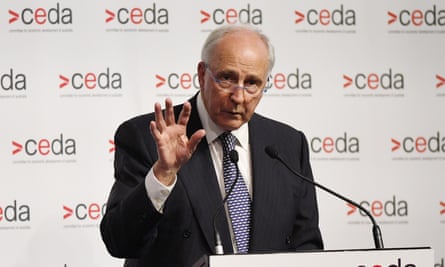When the sales of printed newspapers fell dangerously low this year, News Corp Australia made a monumental decision. Did they decide to stop publishing newspapers? Well, not quite. They decided to stop publishing circulation figures. The decision means we will never again know how many copies of each paper they sell.
What was to be the final set of bad figures was handed down in August. The Audit Bureau of Circulation, which independently audits newspaper sales, reported circulation drops of more than 10% in some cases. The Australian, which calls itself the “heart of the nation” sold 94,448 copies a day, down from 99,027 at the same time the previous year. The Saturday edition of the Daily Telegraph reported a circulation of 221,996, down from 233,546 at the same time last year. The Herald Sun, the top-selling Monday to Friday publication in the stable, fell almost 10% to 303,140. The Daily Telegraph weekday edition fell below 230,000 for the first time – to 221,641 – and the Sunday Telegraph fell below 400,000 for the first time.
The ABCs, as they are known, have always provided a reliable measure for advertisers who will pay according to the number of eyeballs and the demographic they are targeting. But every time they are published the figures paint a gloomy picture. Earlier this week, Rupert Murdoch’s Australian arm suddenly withdrew its newspapers from the Audited Media Association of Australia, which publishes the ABCs, a move which effectively ends the transparent auditing of printed papers in this country.
Perhaps the newspaper business is getting a makeover ahead of Murdoch’s sale of $66bn worth of 21st Century Fox’s assets, including a Hollywood film studio and a 39% stake in Sky. Industry expert and Mumbrella publisher, Tim Burrowes, says pulling out of the ABCs is a way of burying increasingly bad news about the long slow decline of print.
“It’s disappointing because it means less transparency but was probably inevitable,” Burrowes told Weekly Beast. “It’s easy to understand why a publisher doesn’t want to spend thousands of dollars a year promoting what has tended to be a cavalcade of bad news about fading copy sales. Some advertisers will be upset but this is also on them. If the industry had demanded and rewarded transparency in the first place then we might not be where we are.”
News Corp will now rely on a measurement it created with other publishers back in 2013: Enhanced Media Metrics Australia (Emma) which promotes readership numbers, rather than circulation, as the key metric and is based on asking survey questions. News Corp says the circulation figures are “no longer a representative measure of today’s cross-platform audiences”.
Roxy’s muse

Stan, a streaming service jointly owned by Fairfax Media and Nine, is the Australian version of Netflix which launched a couple of months before the US giant, at just $10 a month, to try and catch the local market. Australian actress and Hollywood star Rebel Wilson was initially recruited to promote Stan to Australian viewers and she even made a personal appearance at the Sydney launch. But this week, ahead of the arrival of two new services on the market – Amazon Prime and CBS – Stan chose a new personality to represent it.
Sydney publicist and Daily Mail Australia staple Roxy Jacenko, who hit the headlines when her husband Oliver Curtis was jailed for insider trading, is Stan’s new “brand ambassador”.
This article includes content provided by Instagram. We ask for your permission before anything is loaded, as they may be using cookies and other technologies. To view this content, click 'Allow and continue'.
Jacenko, who also runs an Instagram account for her six-year-old daughter Pixie Curtis, announced the move on Instagram where she has 205,000 followers. Stan says Jacenko’s busy lifestyle as an “entrepreneur, working mother and wife”, doesn’t leave much time for leisure so the streaming service is perfect for watching when she and the kids have the time.
The deal involves Jacenko posting endorsements on her Instagram accounts, such as this one: “Thursday nights in with my little angels and @stanaustralia, that is … until the pillows came out!!” To kick-off the partnership, Roxy shared her family’s favourite shows: Power, Unreal, Absolutely Fabulous, Teenage Mutant Ninja Turtles and Powerful Girls.
Fast forward
There are not many serving newspaper editors who have a feature film made about them, but then Erik Jensen, the editor of the Saturday Paper doesn’t hang about. In 2007, Jensen became the youngest person to join the Sydney Morning Herald’s news staff in two decades, going on to be the founding editor of the Schwarz Media publication in 2014 when he was just 25. Jensen’s relationship with the late artist Adam Cullen is the subject of a new film, Acute Misfortune, which began shooting this week in the Blue Mountains. Acute Misfortune is the adaptation of Jensen’s award-winning biography of Cullen, which he began writing when he was just 19 and he moved into Cullen’s spare room.
The Archibald Prize winning Cullen, who died in 2012 aged 47, will be played by Daniel Henshall (Okja, Snowtown, Not Suitable for Children) and Jensen will be played by Toby Wallace (Romper Stomper, Boys In the Trees). Wallace has been contacting former colleagues of Jensen’s at the SMH to ask what he is like. Jensen hilariously revealed last year that after the ABC’s Australian Story had been filming him for 20 hours, they pulled the pin. “They ultimately decided I was too boring to be a subject of Australian Story,” he said. “Which is really a confronting thing to be told by a producer.”
Net work
It’s generally not a good idea for a newspaper to allow a journalist who is heavily involved in an issue to report on that issue, but the Australian chose to ignore this simple rule this week. A front-page story, “Uproar over push to dump shark nets”, was written by one Fred Pawle, a former online editor at the newspaper, surfing writer and, as his bio says, someone who “has also written extensively about the increasingly fatal shark issue in Australia”.
Pawle left the Oz recently to join a former editor of the Australian, Nick Cater, at the Menzies Research Centre as its communications director. But he was brought back into the fold to report on the Senate environment committee’s inquiry: Shark mitigation and deterrent measures. The Senate inquiry found that shark nets should be phased out as they cause more harm than good and should be replaced by lethal drumlines with more sophisticated gear to limit unnecessary harm to marine wildlife.
Pawle made a submission to the inquiry after he “became alarmed about the increasing number of shark attacks on surfers, divers, swimmers and other ocean users in Australia, and felt an obligation to research the reasons why these attacks were happening”.
“In my investigations, I discovered a worrying lack of concern among shark researchers, politicians and bureaucrats towards these often tragic attacks, and this is what I would like to bring to the committee’s attention,” Pawle said in his submission.
In July in Brisbane, Pawle gave evidence to the committee, chaired by the Greens senator Peter Whish-Wilson, with whom he clashed frequently during the hearing.
Pawle: “It boils down to where you sit in this debate. Is the sanctity of human life a higher priority than hypothetical environmental consequences? In my opinion, a human life is more important.”
Whish-Wilson: “I would argue it was around the other way, that it is hypothetical human safety issues versus black and white environmental issues, if we know the numbers being caught in those nets. Because the evidence so far—and we will summate it all together – is that there may be other ways of protecting human life, or the existing ways are not as effective as people are saying that they are.”
On the front-page news story in the Oz on Wednesday it was not disclosed that Pawle had an interest in the story, although the online version carries a note saying “Fred Pawle is a freelance journalist who specialises in coastal management issues. He made submissions to the Senate inquiry”.

Retreating on Keating
The Sydney Morning Herald has apologised to former prime minister Paul Keating for a report this week which said his position on the advisory council to the China Development Bank, a state-owned bank that raises money for large infrastructure projects, meant he might have to register on the Turnbull government’s agents of foreign influence list.
On Friday, the paper published an apology on page 2, amended the online story and added the following line: “An earlier version of this article may have been taken as suggesting that views expressed by Paul Keating on foreign policy were influenced by his position on the advisory council of a Chinese government development bank and that he may be an ‘agent of influence’ of the Chinese government. This was never intended. Any such suggestion has been withdrawn by the amendment of the article and Fairfax apologises to Mr Keating for any harm done.”
Beast unburdened
This is the last Weekly Beast of 2017. We’re off to watch Love, Actually on a loop until January. Season’s greetings and a happy new year to you all.

